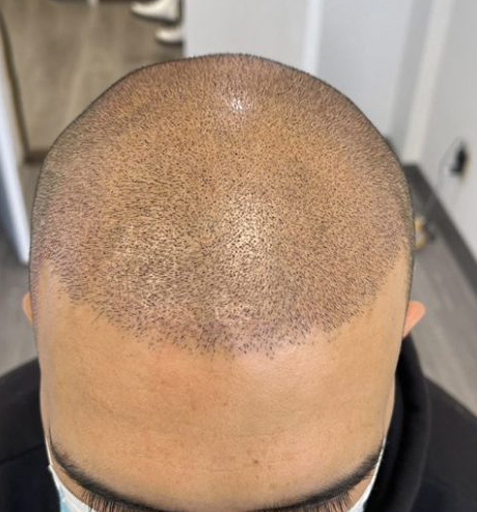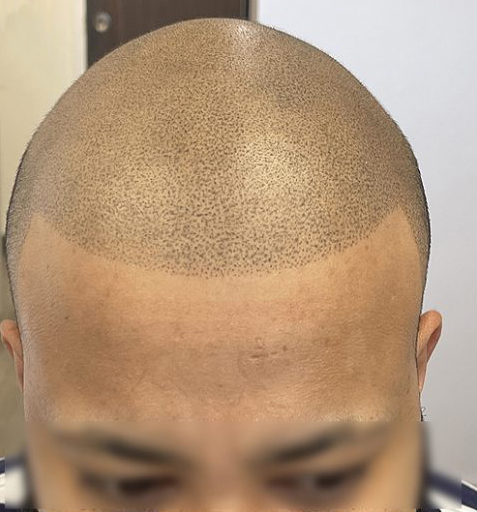
Table of Contents
Hair loss can be frustrating and stressful. Seeing your hair change, like thinning hair, a receding hairline, or a lot of hair falling out, can make you feel less confident. Many people struggle to find the right solution. They try different shampoos, treatments, and home remedies. But they only see little or no results.
Imagine waking up, seeing more hair on your pillow than usual, or noticing your part getting wider daily. You might feel worried, confused, or even helpless about what’s causing it. The truth is, hair loss doesn’t happen overnight. Factors like diet, stress, and scalp health play a big role in keeping your hair strong—but most people don’t realize it until they start losing hair.
You can take control of your hair health! With expert advice from trichologists (hair and scalp specialists), you can learn how to prevent hair loss and keep your hair healthy, thick, and strong.
Let’s dive into the best ways to care for your hair!
Table of Contents
Hair loss happens for many reasons. Understanding the cause of hair loss is the first step in preventing it. Let’s explore the most common causes:
If hair loss runs in your family, you may start seeing changes as early as your 20s or 30s. Pattern baldness in men and women (androgenetic alopecia) is inherited. It gets worse over time.
Your hair needs the right nutrients to stay strong. A lack of iron, biotin, zinc or vitamin D can weaken hair follicles. Poor diet and dehydration can also slow hair growth.
Hormonal shifts during pregnancy, menopause, or thyroid disorders can disrupt the hair growth cycle. High stress levels can also trigger conditions like telogen effluvium. Where hair falls out more than usual.
Frequent use of heat tools, chemical treatments, and tight hairstyles can weaken hair strands and cause breakage.
Hair loss doesn’t happen overnight. It often starts with subtle changes that many people overlook until the thinning becomes more noticeable. Recognizing these signs early can help you take action before the problem worsens.
One of the first signs of hair loss is a decrease in hair volume. You may notice that your ponytail feels thinner, your scalp is more visible, or your hair lacks its usual fullness. This happens when hair strands grow back weaker and finer over time.
A shifting hairline is another early indicator of hair loss. Men may see their temples and foreheads push back. While women may notice their part widening or hair thinning near the front.
Losing 50–100 strands per day is normal, but excessive shedding can be a concern. If you see large clumps of hair in your brush, pillow, or shower drain, it may signal an issue that needs attention.
Take care of your hair with healthy habits and expert advice. Here are the best ways to do so.
A healthy scalp is the base of strong hair. If your scalp is dry, oily or clogged with product buildup, it can weaken follicles and cause excessive shedding.
What you eat affects your hair. A nutrient-rich diet nourishes hair from the inside out.
The way you wash, style, and handle your hair plays a big role in preventing hair loss.
Proper Washing Techniques: Use lukewarm water instead of hot water. As heat can strip essential oils and weaken hair. Shampoo your hair 2-3 times a week to maintain a balanced scalp.
Stress is a major contributor to hair loss. When your body is under stress, it can push hair follicles into the resting phase. It causes sudden shedding.
A trichologist specialist can help diagnose hair problems early and provide targeted treatments to prevent hair loss.
Taking care of your hair starts with simple daily habits. Keeping your scalp clean, eating the right foods, reducing stress, and following a gentle hair care routine can help prevent hair loss and promote stronger hair growth.
If you’re noticing thinning hair or excessive shedding, don’t wait too long to take action. A trichologist can assess your scalp, identify issues, and recommend treatments to keep your hair healthy. Small changes today can make a big difference in the future!






© 2024 HAIRTATTOO.CA | Scalp Micropigmentation & Trichology Centre
